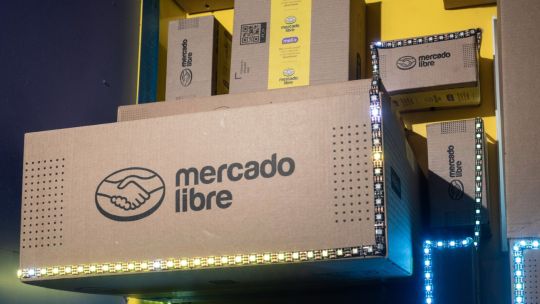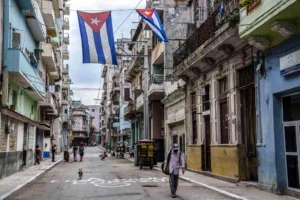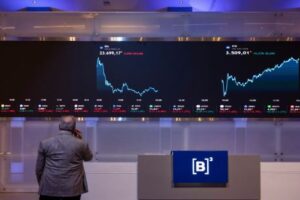
MercadoLibre Inc has long dominated the online-shopping market in Latin America, but this holiday season, it finds itself in a fight to fend off rivals from both ends of the Pacific Ocean.
On one side, there’s Amazon.com Inc, a global behemoth with seemingly endless resources. On the other, Asian players like Shein Group Ltd and Sea Ltd’s Shopee are aiming to lure budget-conscious consumers with low-cost offerings. Brazil is the main prize: It’s Latin America’s biggest economy and offers lots of growth potential, with only around 15 percent of people there currently shopping online, according to research from Itau BBA.
This sudden battle for customers is spooking MercadoLibre investors. Shares of MELI, as the company is known in financial circles, dropped almost eight percent in one session this month after Amazon inked a deal with São Paulo-based financial firm Nu Holdings Ltd. to offer new payment options – and more credit – to Brazilian customers. The stock has fallen nearly six percent in the three weeks since then, sliding to roughly US$2,000.
Analysts have warned that earnings at MercadoLibre, Latin America’s biggest company by valuation, could take a hit. Last week, Citigroup Inc analyst João Pedro Soares issued a “negative 90-day short-term view” on the stock, citing “persistent competition noise” and name-checking Amazon and Shopee. He also dropped his price target to US$2,500 from US$2,700 while keeping a “buy” rating on the stock.
MercadoLibre is fighting back and offering goodies of its own. It has invested almost US$19 million in coupons for its upcoming Black Friday sale, its biggest-ever outlay for the event and about twice what Amazon has spent. Earlier this year, it lowered the bar for customers to receive free shipping. For Rodrigo Gastim, an analyst at Itau, the strategy means the company is willing to give up some of its profit margins in order to “entrench” its top spot.
“We’ve been competing for many years not only with Asian platforms but also with other global industry leaders,” MercadoLibre said in a statement. “This competitive environment has always driven us to raise our standards and aim for excellence, which has allowed us to lead the market in every geography where we operate.”
‘Raise the bar’
Juan Martín de la Serna, the head of MercadoLibre’s Argentina business, remembers when Amazon first arrived in Brazil about a decade ago.
“They forced us to raise the bar and be much more aggressive,” he said at a conference in Buenos Aires earlier this month.
That’s especially the case now. Amazon has invested more than US$10 billion in Brazil, with about a quarter of that coming in the last 18 months, said Juliana Sztrajtman, the company’s country manager for Brazil. One major initiative is its decision to waive fees for merchants who use its fulfilment services in an effort to attract sellers to the platform.
At the same time, Asian firms are planting their flag in the region. PDD Holdings Inc’s Temu had 105 million monthly active users in Latin America in the first half of 2025, according to Sensor Tower, which tracks consumer behaviour.
De la Serna has been critical of those companies and their approach, calling them sellers of “low-quality products.” It’s a view shared by Brazilian lawmakers. Last year, they imposed a 20-percent levy on low-cost imports in a move largely aimed at Asian fast-fashion companies.
Discounts, perks and even government intervention aren’t the only weapons in the e-commerce battle. The online platforms are also using star power. Brazilian football stars Neymar and Ronaldo are boosters for MercadoLibre, while Amazon has enlisted actress and television host Tatá Werneck. Hollywood mainstay Terry Crews is a Shopee promoter, speaking Portuguese in an ad for the Singaporean company.
Soares, the Citi analyst, said the corporate jousting could lead to a downshift in the market’s earnings expectations for MercadoLibre. He’s optimistic, though, that the company, which has enjoyed 27 straight quarters of double-digit annual growth, will keep on spending to ensure it comes out on top.
“MELI is the long-term winner,” he wrote, but “it will take higher investments.”
related news
by Leda Alvim, Rachel Gamarski & Maria Clara Cobo, Bloomberg





